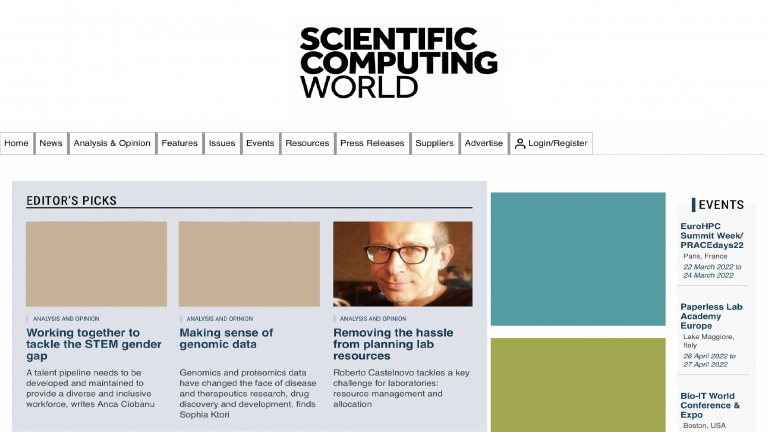Scientific Computing World interviewed Roberto Castelnovo, founder and CEO at Optima PLC Tracking Tools S.L. which has recently launched the automated version of their Optima Laboratory Resource Management Tool.
Mr Castelnovo tackles a key challenge for laboratories: resource management and allocation.
Laboratories have always been sophisticated service organisations built to respond to specific demands – with the goal of delivering results in the quickest and most efficient way. Do it better, do it faster, retain quality – and, of course, reduce the costs as much as possible; this is the every-day reality that laboratories have to face in their ongoing business.
Managers are constantly challenged to provide the required information as soon as possible. Customers, whether they are internal or external, are waiting for information produced by the laboratory to proceed with their activities, and they expect it to be fast and 100 per cent accurate.
At the heart of this challenge lies one of the main laboratory KPIs: resource management and allocation.
Although we live in the digitalisation era, laboratories are still mostly using paper-based or static systems to allocate their resources – stickers on the walls, excel files, emails – though in some cases the more ‘cutting-edge’ laboratories are using in-house solutions built to respond to the short-term need to allocate the resources in the quickest way possible. However, they rarely succeed in being life-saver solutions.
‘Home-made’ solutions or Excel files are not an answer to the key questions related to resource scheduling. The major limitations of those systems may lead to an inability to respond to the business demands in a short period of time, missed deadlines, and reduced quality.
see full article at scientific-computing.com
Scientific Computing World is the only global publication dedicated to the computing and information technology needs of scientists and engineers. It covers computing for engineering, science, and technology, grouped under the headings of Laboratory Informatics; High-Performance Computing; and Modelling and Simulation.





